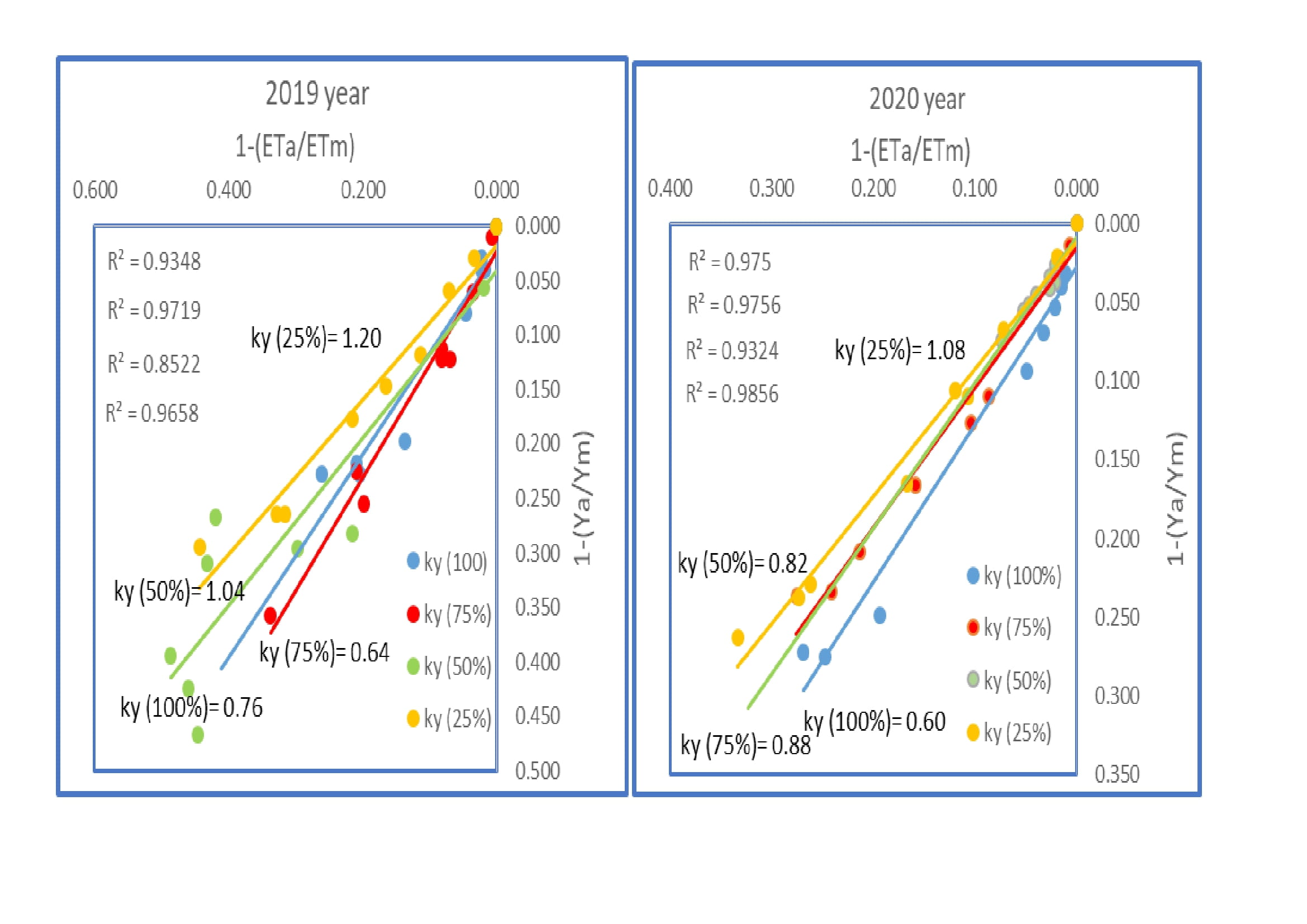This study was to determine the effects of different irrigation, fertigation and mulching applications on the yield and quality parameters of strawberries. The study was conducted at the Bursa Uludağ University Yenişehir Ibrahim Orhan Vocational School Agricultural Research Field in 2019-2020. In the research, four different irrigation topics, three different fertigation and three different mulching topics were selected The maximum and minimum yield values of the study years were calculated as 5.05-18.70 t ha-1 and 1.20-8.7 t ha-1, respectively, from I100F100M1 and I25F50M0 treatments. As a result, a three-factor study determined that irrigation, fertigation, and mulching had a significant effect on the yield and quality characteristics of strawberries. However, when the reductions in yield and quality losses are evaluated together, despite the reductions in irrigation water and fertigation levels, I75 and F75 topics can be recommended. Also, in mulching treatments, black mulch material (M1) should be chosen over clear mulch material (M1) and no mulch (M0).

